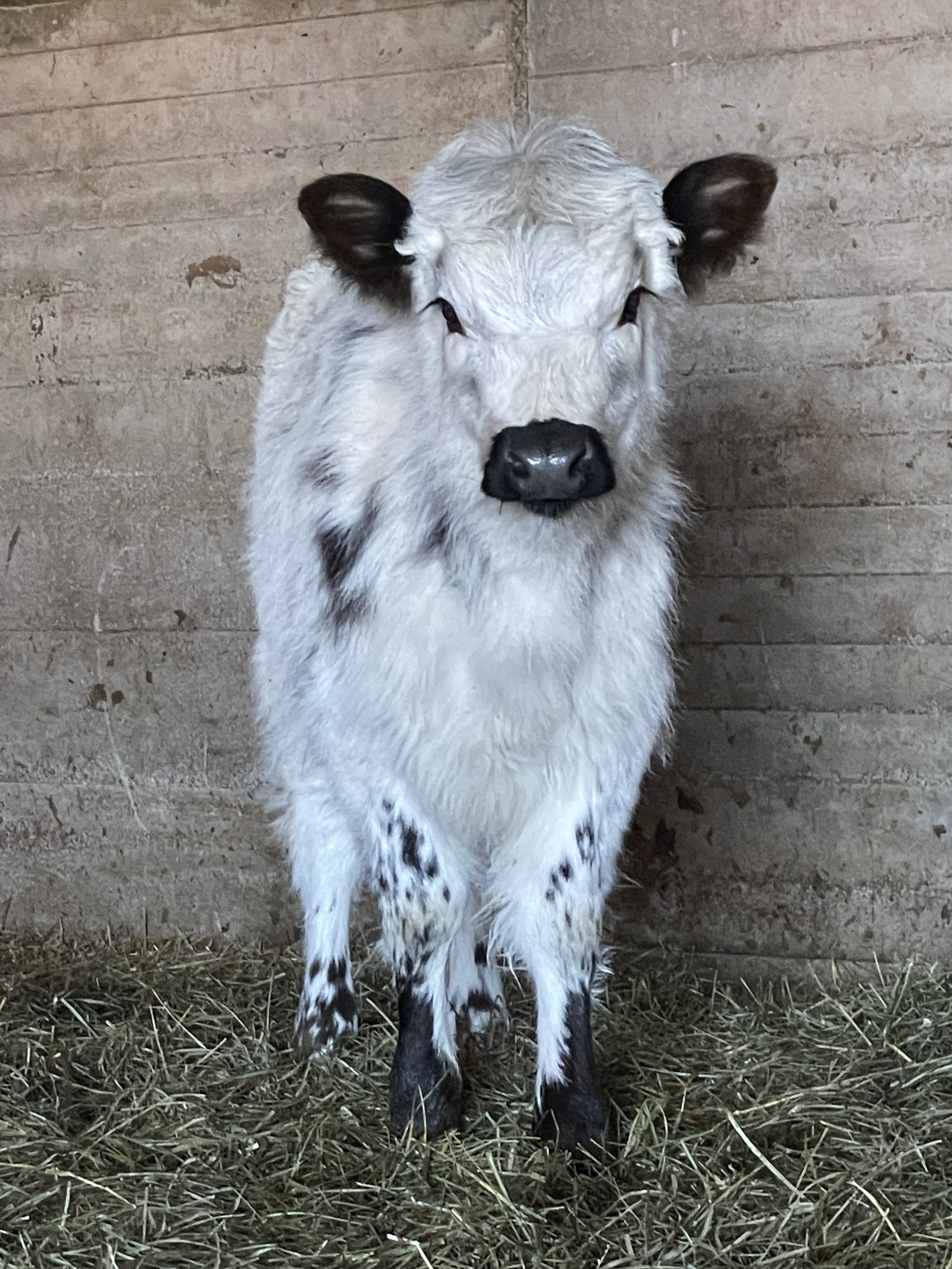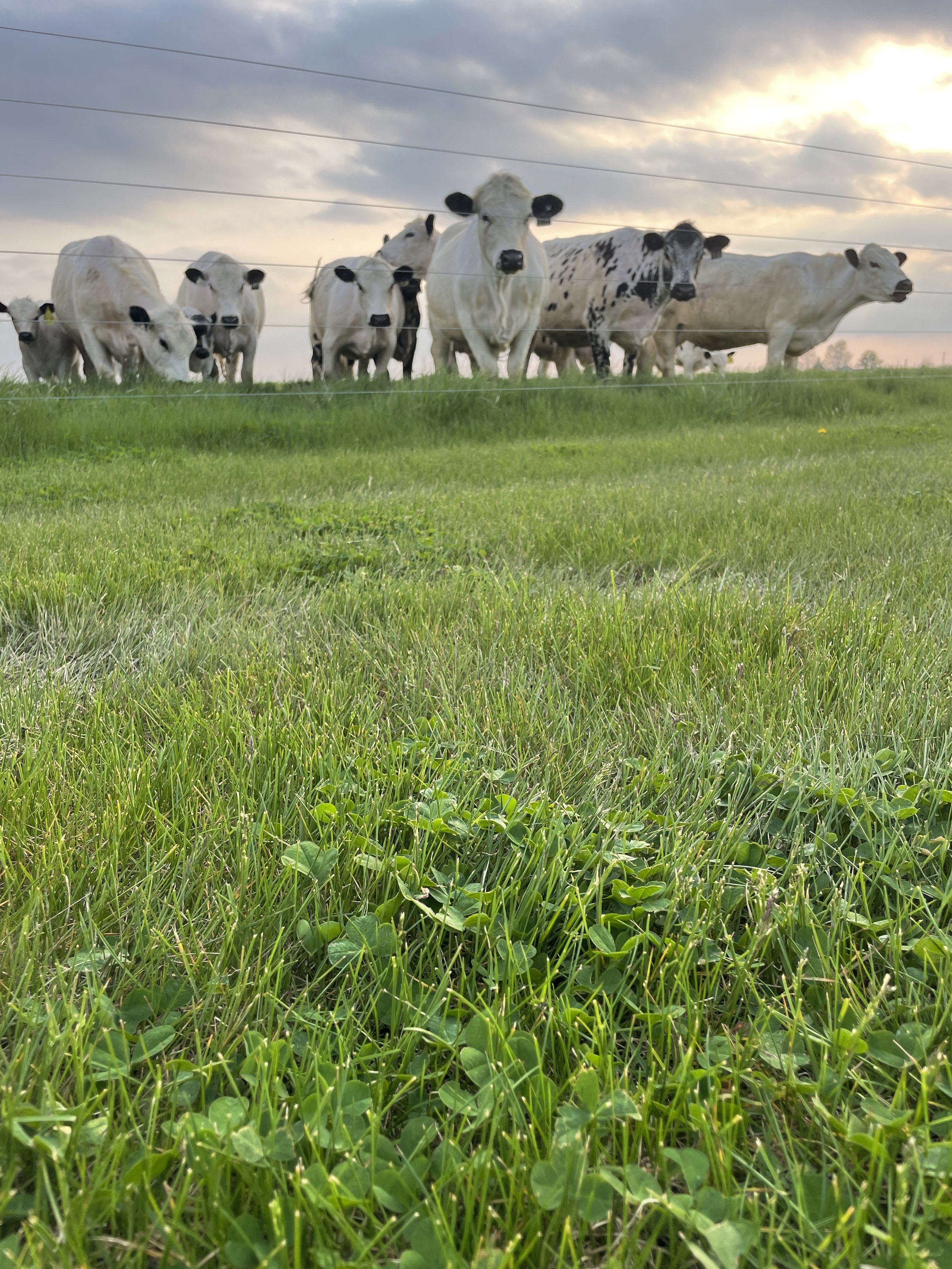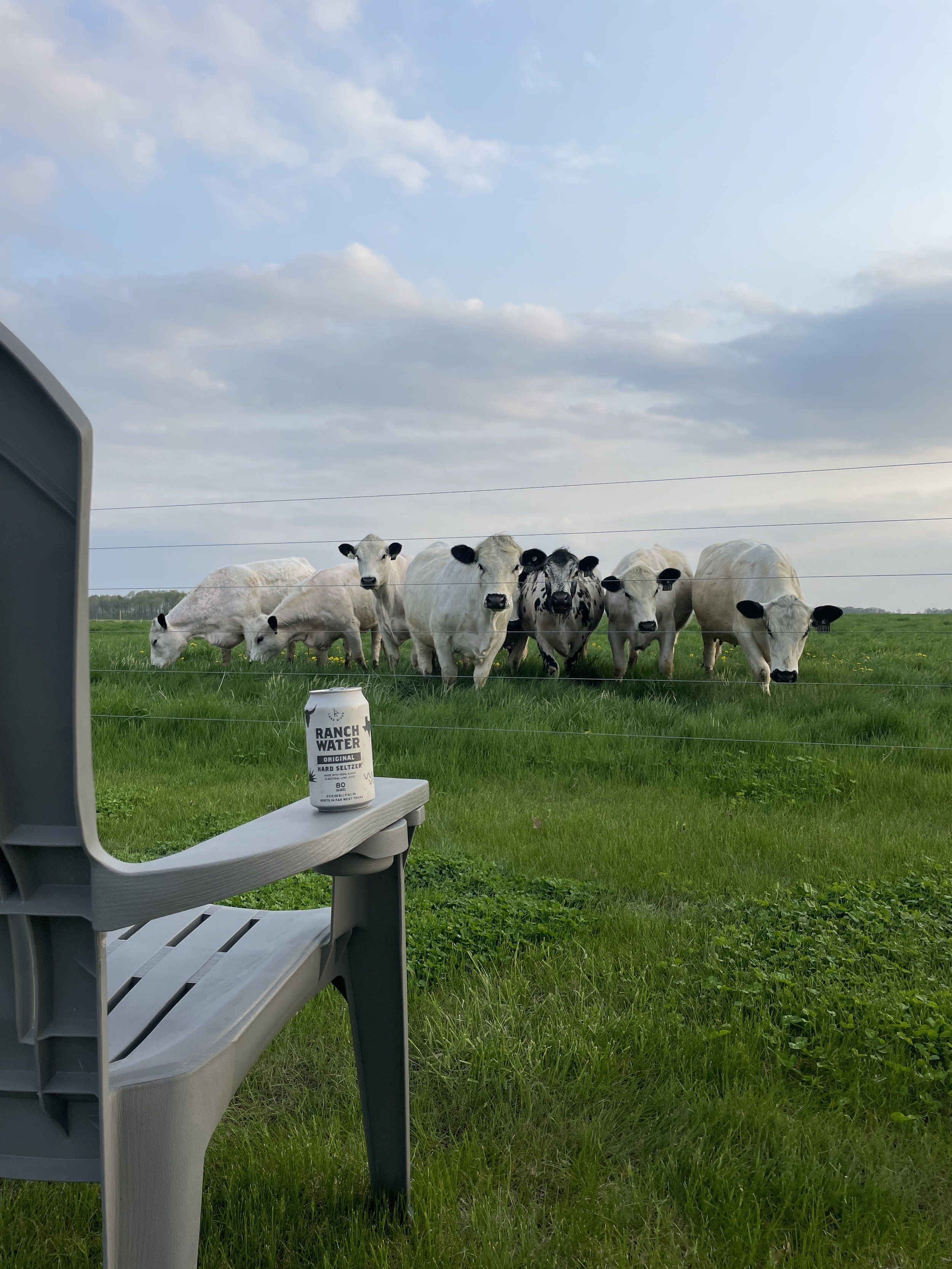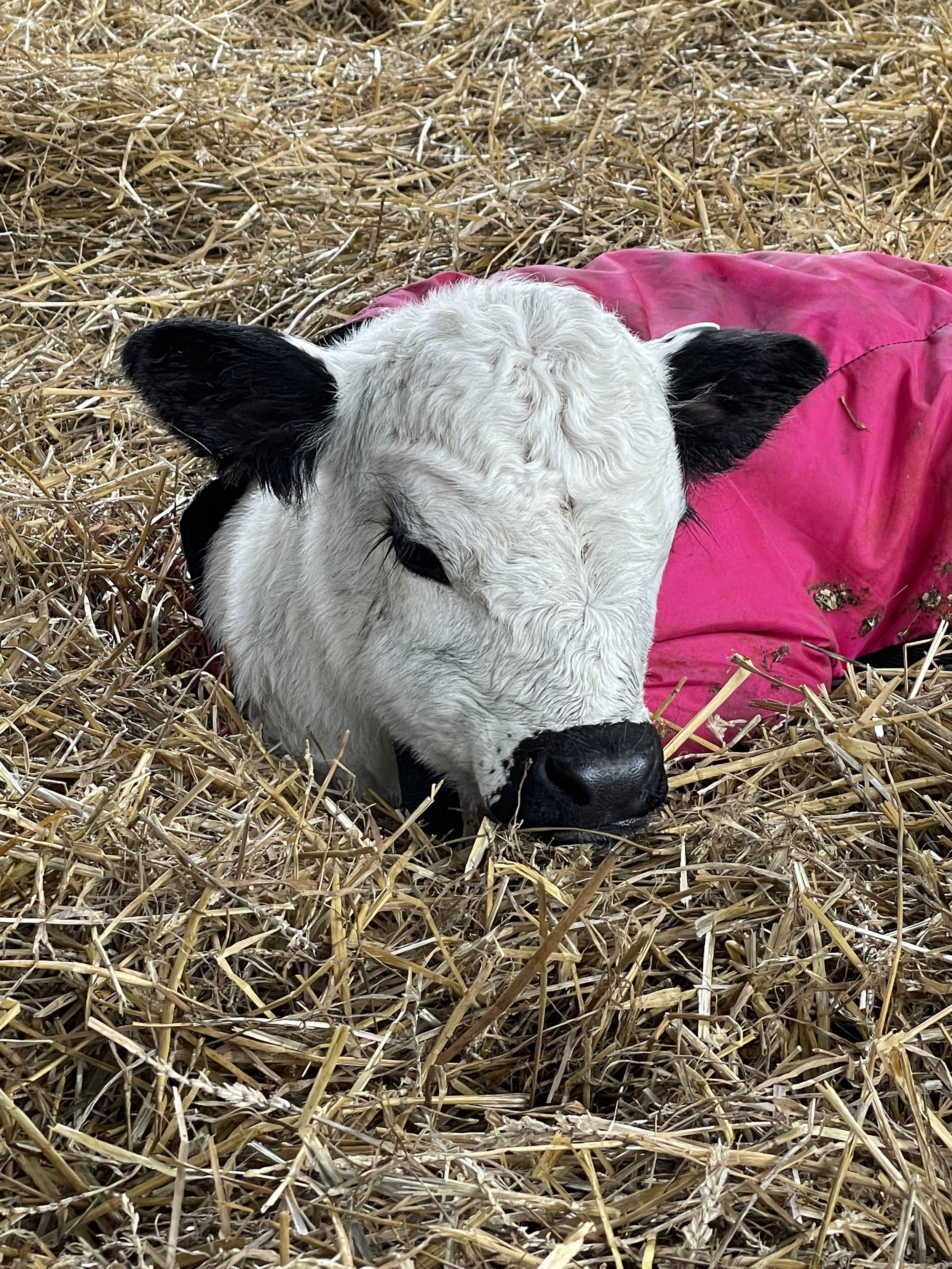What you Need to Know About British White Cattle
In case you’re new around here, welcome to Black Label Farms! We are excited to start publishing a monthly blog to help educate our community about our British White Cattle. What you might not know is that there are several reasons that British White Cattle are right for us and our goal is to help you figure out if British Whites are good for you as well. Whether you are here to learn about what we do or are here to learn more about the breed, we have you covered! Let us know in the comments what you want to learn more about.
British White Cattle History
British Whites originated in Britain and are one of the oldest breeds with direct lines to the indigenous wild white cattle of Great Britain. The foundation breeding of British Whites started as early as the 1700s but didn’t really start to look like the cattle we know today until the early 1900s. Back then, some of the cattle that were being used were referred to as “Park Cattle”, which is why you will also hear British Whites referred to as British White Park Cattle as well.
In 1918 the Park Cattle Society was formed with the main objective of keeping records of Park Cattle but also to encourage and maintain breeding standards. At that time, there wasn’t a set breed standard other than the general color and size of the breed. Then, in 1946 we saw British Whites separate into two main versions of the breed, horned and polled. Since that year, the British White Cattle Society evolved and changed the breed to what we now know as British Whites.
The popularity of the breed took a while to catch on with the general public. It really wasn’t until 1973 that a growing awareness of the breed’s existence and desirability of rare breeds began to emerge. Then, in 1990 the society reported 116 herds that contained roughly 1,500 registered cattle.
Characteristics of British White Cattle
As mentioned above, we will be discussing the specific characteristics of the traditional British White breed. These cattle can be anywhere from medium to large in stature, they are naturally polled and dual-purpose cattle. They are white in color with black points (nose, muzzle, ears, eyelids, teats, hooves, and tongue) and their skin is often pink or dark pigmented.
British White cattle are docile, hardy, and pretty sturdy. In addition to great attitudes, they are good milk producers as well as equally known for their beef qualities. Most cattle fall under either milk-producing or meat, making British Whites great for families and ranchers who want to do both.
Quick Facts About British White Cattle
Quality beef
Maternal instincts
Growth and hardiness
Tick tolerant
Milking ability
Fertile and easy calving
Our British White Cattle For Sale
Here at Black Label Farms, we take great pride in producing top-quality animals. We encourage anyone looking to get into the breeding of British Whites to contact us with any questions or inquire about available British White Cattle for sale.
British White Cattle Semen
If you aren’t looking to purchase your own but are looking for new genetics to introduce to your herd, we do offer semen from our own British White bulls. All of our bulls are collected and stored at Great Lakes Sire Service, A CSS health-certified facility. Certified semen services (CSS), a subsidiary of the National Association of Animal Breeders, provides auditing services to ensure the health and identity of semen processed by its 33 member organizations. Semen purchases are simple and convenient! For more information click here.






